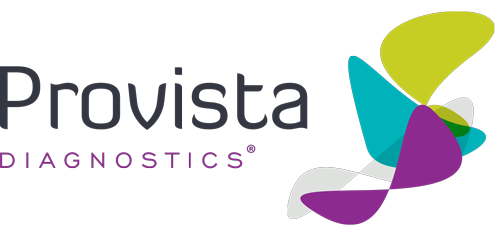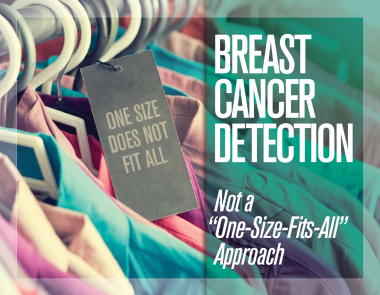Provista Diagnostics’ Study First to Show that Age Should Be Considered When Developing Diagnostic Assays
Breast cancer blood test results are first to demonstrate age-related differences in Tumor-Associated Autoantibodies (TAAbs); data presented at Miami Breast Cancer Conference
New York, NY – March 11, 2016 – Provista Diagnostics, Inc., a company developing and commercializing proteomic-based diagnostic, prognostic and monitoring tests for cancers affecting women, today announced results of a study showing that age should be considered when developing diagnostic assays.
The poster, presented at the Miami Breast Cancer Conference in Miami Beach, is the first to demonstrate age-related differences in Tumor-Associated Antibodies (TAAbs).
The study examined the TAAbs and Serum Protein Bio-markers (SPBs) of 492 women between the ages of 25-75 who received a BI-RADS® 3 (probably benign) or BI-RADS® 4 (suspicious) assessment from diagnostic imaging. Age-related differences were found in the majority of individual protein biomarkers even when accounting for breast density and cancer prevalence.
The data further suggests that age 50 serves as a strong guide to when changes may occur in TAAb expression as hormone level changes associated with menopause may be a factor.
“While there have been studies showing age being a factor in (SPB) expression, we believe this is the first study to examine whether there were age-related differences in the expression of TAAbs,” said lead investigator Kasey Benson PhD of Provista. “These results show that there are differences in TAAb expression and this knowledge is extremely valuable as we continue to develop Videssa® Breast – a blood-test that detects the presence or absence of breast cancer – for women of all ages.”
Videssa Breast is able to analyze a patient’s SPBs and TAAbs and can improve detection of early breast cancer, irrespective of breast density. With the results of their studies, Provista will now be able to produce two variations of Videssa Breast to account for changes in TAAbs due to aging.
“The data allows us to produce blood-based tests to provide accurate results regardless of age,” said Susan Gross, MD, Chief Medical Officer. “We have now evaluated Videssa Breast in more than 843 women to date and it has consistently shown a high degree of accuracy, when combined with imaging, in detecting the presence or absence of early breast cancers. Videssa Breast not only provides an important additional tool in the early detection of breast cancer but can also reduce false positives.”
About Videssa® Breast
Videssa Breast is the first blood-based proteomic test of its kind to provide early and accurate detection of breast cancer. In women who present with abnormal or difficult-to-interpret mammography results, the decision whether to order additional imaging or biopsy can be difficult. With a simple blood draw, Videssa Breast can help guide further diagnostic procedures or provide assurance that the patient does not have breast cancer. Videssa Breast transforms the breast cancer detection paradigm and applies proteomic testing to bring clarity to imaging results. When used in combination with imaging, Videssa Breast improves diagnostic accuracy and provides greater confidence and clarity when clinical assessment is challenging.
About Provista
Provista Diagnostics is a privately held molecular diagnostics company focused on developing and commercializing a new generation of proprietary blood-based proteomic diagnostic, prognostic and monitoring tests designed to address the unmet needs in women’s cancer, such as breast and gynecologic cancers. Provista Diagnostics’ state-of-the-art, high-complexity clinical laboratory is accredited by the College of American Pathologists (CAP) and with the Clinical Laboratory Improvement Amendments (CLIA).
Additional information about Provista Diagnostics is available at ProvistaDx.com
Information about Provista Diagnostics’ clinical trials is available at ClinicalTrials.gov
Safe Harbor Statement
Statements contained in this communication not relating to historical facts are forward-looking statements that are intended to fall within the safe harbor rule for such statements under the Private Securities Litigation Reform Act of 1995. The information contained in the forward-looking statements is inherently uncertain, and Provista’s actual results may differ materially due to a number of factors, many of which are beyond Provista’s ability to predict or control, including among others, viability and effectiveness of our sales approach and overall marketing strategies, the outcome of development or regulatory review of our products, commercial success or acceptance by the medical community, competitive responses, our ability to raise additional capital, and the ability to successfully file a registration statement with the SEC. These forward-looking statements are subject to known and unknown risks and uncertainties that could cause actual events to differ from the forward-looking statements. Provista operates in a highly competitive and rapidly changing business and regulatory environment, thus new or unforeseen risks may arise. Accordingly, investors should not place any reliance on forward-looking statements as a prediction of actual results. Except as is expressly required by the federal securities laws, Provista undertakes no obligation to update or revise any forward-looking statements, whether as a result of new information, changed circumstances or future events or for any other reason.
###
Download PDF









